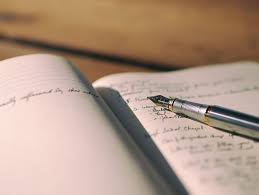

Even if you do not suffer from depression, the journaling process and the kind of deep inner exploration and evaluation it provides can be a key part of a wellness process.
Why journal?
“My diary – my journal – is my best friend. It has seen me through the worst and the best of times.”
“My journal is always available. It is a completely trusted friend when no one else is around.”
K. Adams wrote in Journal to the Self, 1990:
“In moments of ecstasy, in moments of despair, the journal remains an impassive, silent friend, forever ready to coach, to confront, to critique, to console. Its potential as a tool for holistic mental health is unsurpassed.”
What you are reading is my 235th journal entry since I was diagnosed with Major Depressive Disorder.
If you peruse my older entries, you can find blog posts on each of these topics. My day to day writing is not planned. Many bloggers have a calendar with specific blog ideas they are working on. These are often related to products that they are promoting.
Me, I am promoting my own recovery and journey towards a balanced life.
As K. Adams wrote, my journal is “forever ready to coach, to critique.” I have used this, without knowing the science behind it. I just know that for me, it works. Using journaling, I can work out problems, challenges and figure out what I am thinking. Unhelpful thinking styles are uncovered through this process.
The more I write, the more I understand myself and how depression has commandeered my life.
Every sneaky, underhanded trick it has ever thought of, it has tested on me. Sometimes, it got me to go along. In fact, for over 43 years, I rarely questioned what it was whispering in my ear. And when I did test the boundaries of my relationship with depression, it would throw me a curveball or shove me up against a wall so I could not see any way forward that wasn’t depressions idea.
Depression isolated me, with specific instructions to keep secrets from anyone who might challenge its existence.
READ MORE: Why did I think that? I thought I was getting better.
Depression, you see, wanted total control over me and often presented its ideas in such a way that they sounded like they were coming from a colleague or a trusted friend. And then when I would execute the idea, there was always a moment when the bill had to be paid. And every single time, without exception, depression was nowhere to be found when it was time to pay up.
In those instances, all I heard from depression was crickets, deathly silence.
So back to journaling, I am a huge fan of the process. I never kept a diary growing up but was once given a bound book with empty pages. My friend suggested that I use it to write my story. I still have the book, but so far, it is still just a collection of blank pages.
If you are currently journaling, try out these seven topics. [From WRAP Plus, Mary Ellen Copeland, Ph.D.]
- Write a letter to someone you would like to tell off, but it wouldn’t be wise or who is not available
- Write a letter to yourself, pretending you are your own best friend
- List the best things that have happened this day [month, year, in your life]
- The best thing that ever happened to me
- The worst thing that ever happened to me
- Make a list of the reasons you want to be alive
- Write five things you need to do today and how you feel about doing them
If you are thinking about a diary or journal, these can be a starting point.
For me, the process has been a lifesaver. Journaling, blogging, has given me a way to work out my relationship with depression. And, it has given me a process for understanding myself and coming to a better appreciation of my own personal story.
Journaling is a way I am learning to like myself, just as I am.
For me, this is as frightening as going into the emergency room and saying, “I have a mental health problem and I need to see a medical professional.” That was a day I will never forget. And that was the day, I set in motion my writing.
My writing has become more focused in the past 8 or 9 months.
Seeing this progress is gratifying. Understanding some of the challenges I face and figuring out, though my writing, better ways to handle them has increased my confidence. I don’t have as many days where I time-travel. In the past, I would spend lots of time in the past “shoulda, woulda, coulda-ing.” I also spent major amounts of time in the future, like a mind reader.
I would make up an entire story about why someone would not want to help me, and then envision the results of this, without ever talking to the person.
READ MORE: I didn’t time travel this past weekend
With depression as my partner, I could spend weeks in the future and never miss the fact that I was not living in the moment. Journaling has given me a way to discover myself and re-invent how I want to look at life in general, and my life specifically.
The result of my journaling is a newfound respect for myself.
And it only took me 43+ years to figure this out.
My concealed depression is written under the alias “Depression is not my boss.” I have certifications in SMART Recovery and am a Global Career Development Facilitator.
Last year, I was diagnosed with Major Depressive Disorder.







Leave a Reply